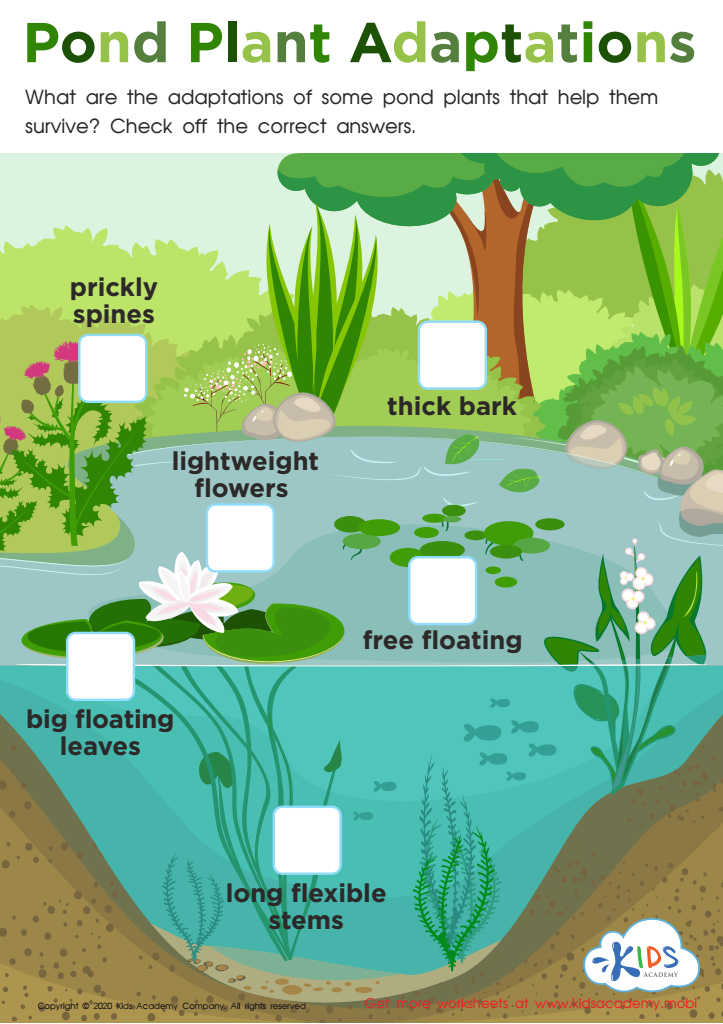Learning about ponds Worksheets for Kids
1 filtered results
-
From - To


Pond Plant Adaptations
Question/Answer
Why is the Learning about ponds skill important for Grade 1 students?
Learning about ponds is important for Grade 1 students because it introduces them to basic ecological concepts, helps them understand biodiversity, and fosters an appreciation for the environment. This knowledge lays the groundwork for future scientific learning, promotes curiosity about the natural world, and teaches them the importance of conservation and the interdependence of living organisms.
How does the mastery of the Learning about ponds skill affect a student's performance at an early age?
Mastering the Learning about ponds skill at an early age can significantly enhance a student’s understanding of ecosystems, biodiversity, and environmental science. It fosters curiosity, critical thinking, and observational skills. Additionally, it provides a practical context for integrating knowledge from various disciplines, thereby improving cognitive development, academic performance, and promoting a deeper appreciation for nature and conservation efforts.
What are some effective activities to train students’ Learning about ponds skill when teaching them about Plants and Animals?
Effective activities include pond dipping to explore aquatic life, creating pond food webs to understand ecosystem relationships, observing and sketching pond plants and animals, conducting water quality tests to learn about environmental health, and simulating pond ecosystems in the classroom.
 Assign to the classroom
Assign to the classroom




.jpg)







